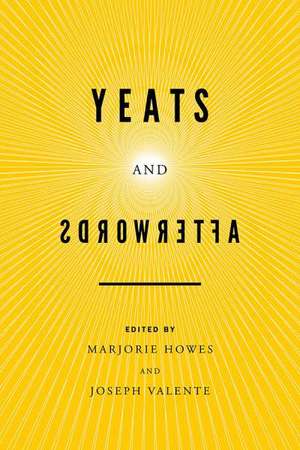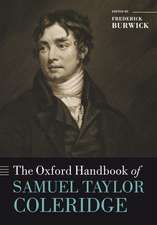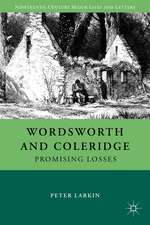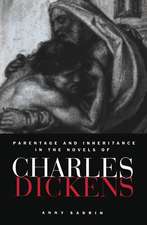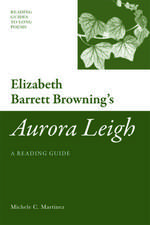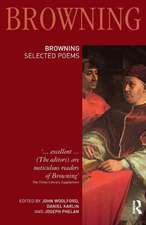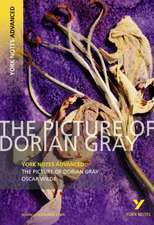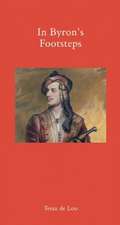Yeats and Afterwords
Autor Marjorie Howes, Joseph Valenteen Limba Engleză Paperback – 14 sep 2014
In Yeats and Afterwords, contributors articulate W. B. Yeats’s powerful, multilayered sense of belatedness as part of his complex literary method. They explore how Yeats deliberately positioned himself at various historical endpoints—of Romanticism, of the Irish colonial experience, of the Ascendancy, of civilization itself—and, in doing so, created a distinctively modernist poetics of iteration capable of registering the experience of finality and loss. While the crafting of such a poetics remained a constant throughout Yeats’s career, the particular shape it took varied over time, depending on which lost object Yeats was contemplating. By tracking these vicissitudes, the volume offers new ways of thinking about the overarching trajectory of Yeats’s poetic engagements.
Yeats and Afterwords proceeds in three stages, involving past-pastness, present-pastness, and future-pastness. The first, “The Last Romantics,” examines how Yeats repeats classic motifs and verbal formulations from his literary forebears in order to express the circumscribed cultural options with which he struggles. The essays in this section often uncover Yeats’s relation to sources and precursors that are surprising or have been relatively neglected by scholars. The second section, “Yeats and Afterwords,” looks at how Yeats subjects his own past sentiments, insights, and styles to critical negation, crafting his own afterwords in various ways. The last section, “Yeats’s Aftertimes,” explores how, thanks to the stature Yeats achieved through its invention, his style of belatedness itself comes to be reiterated by other writers. Yeats is a towering figure in literary history, hard to follow and harder to avoid, and later writers often found themselves producing words that were, in some sense, his afterwords.
"This ground-breaking collection of essays examines Yeats's sense of historical belatedness as theme, as trope, in formal embodiments such as the afterword, and in his strong critical shaping of literary history. In doing so, it historicizes Yeats's own sense of history with unparalleled depth, while seriously acting on the acceptance that form is itself historical. In showing how Yeats's moulding of the past was also the creation of a future, it offers a range of productive new starting-points for the study of this great poet." —Edward Larrissy, emeritus, Queen's University, Belfast
"Although Yeats and Afterwords focuses broadly on questions of inheritance and legacy, it marks a new departure because it re-conceptualizes belatedness in a more complex and more theoretically useful manner than prior studies. What impressed me most about the collection is that the theoretical paradigms introduced at the outset are at once defining and fluid. The editors conceptualize belatedness in such a way that this insight gives structure to the volume, even as it allows for a multiplicity of readings. This volume will have a major impact on Yeats studies and will be useful for scholars working more broadly in Irish and modernist studies." —Rob Doggett, SUNY Geneseo
Yeats and Afterwords proceeds in three stages, involving past-pastness, present-pastness, and future-pastness. The first, “The Last Romantics,” examines how Yeats repeats classic motifs and verbal formulations from his literary forebears in order to express the circumscribed cultural options with which he struggles. The essays in this section often uncover Yeats’s relation to sources and precursors that are surprising or have been relatively neglected by scholars. The second section, “Yeats and Afterwords,” looks at how Yeats subjects his own past sentiments, insights, and styles to critical negation, crafting his own afterwords in various ways. The last section, “Yeats’s Aftertimes,” explores how, thanks to the stature Yeats achieved through its invention, his style of belatedness itself comes to be reiterated by other writers. Yeats is a towering figure in literary history, hard to follow and harder to avoid, and later writers often found themselves producing words that were, in some sense, his afterwords.
"This ground-breaking collection of essays examines Yeats's sense of historical belatedness as theme, as trope, in formal embodiments such as the afterword, and in his strong critical shaping of literary history. In doing so, it historicizes Yeats's own sense of history with unparalleled depth, while seriously acting on the acceptance that form is itself historical. In showing how Yeats's moulding of the past was also the creation of a future, it offers a range of productive new starting-points for the study of this great poet." —Edward Larrissy, emeritus, Queen's University, Belfast
"Although Yeats and Afterwords focuses broadly on questions of inheritance and legacy, it marks a new departure because it re-conceptualizes belatedness in a more complex and more theoretically useful manner than prior studies. What impressed me most about the collection is that the theoretical paradigms introduced at the outset are at once defining and fluid. The editors conceptualize belatedness in such a way that this insight gives structure to the volume, even as it allows for a multiplicity of readings. This volume will have a major impact on Yeats studies and will be useful for scholars working more broadly in Irish and modernist studies." —Rob Doggett, SUNY Geneseo
| Toate formatele și edițiile | Preț | Express |
|---|---|---|
| Paperback (1) | 200.64 lei 3-5 săpt. | |
| MR – University of Notre Dame Press – 14 sep 2014 | 200.64 lei 3-5 săpt. | |
| Hardback (1) | 698.81 lei 6-8 săpt. | |
| MR – University of Notre Dame Press – 29 sep 2022 | 698.81 lei 6-8 săpt. |
Preț: 200.64 lei
Nou
Puncte Express: 301
Preț estimativ în valută:
38.40€ • 39.67$ • 31.96£
38.40€ • 39.67$ • 31.96£
Carte disponibilă
Livrare economică 04-18 martie
Preluare comenzi: 021 569.72.76
Specificații
ISBN-13: 9780268011208
ISBN-10: 0268011206
Pagini: 358
Dimensiuni: 157 x 231 x 25 mm
Greutate: 0.59 kg
Editura: MR – University of Notre Dame Press
ISBN-10: 0268011206
Pagini: 358
Dimensiuni: 157 x 231 x 25 mm
Greutate: 0.59 kg
Editura: MR – University of Notre Dame Press
Recenzii
"This ground-breaking collection of essays examines Yeats's sense of historical belatedness as theme, as trope, in formal embodiments such as the afterword, and in his strong critical shaping of literary history. In doing so, it historicizes Yeats's own sense of history with unparalleled depth, while seriously acting on the acceptance that form is itself historical. In showing how Yeats's moulding of the past was also the creation of a future, it offers a range of productive new starting-points for the study of this great poet." —Edward Larrissy, emeritus, Queen's University, Belfast
"Although Yeats and Afterwords focuses broadly on questions of inheritance and legacy, it marks a new departure because it re-conceptualizes belatedness in a more complex and more theoretically useful manner than prior studies. What impressed me most about the collection is that the theoretical paradigms introduced at the outset are at once defining and fluid. The editors conceptualize belatedness in such a way that this insight gives structure to the volume, even as it allows for a multiplicity of readings. This volume will have a major impact on Yeats studies and will be useful for scholars working more broadly in Irish and modernist studies." —Rob Doggett, SUNY Geneseo
"The book offers a dialectical Yeats, and indeed that word recurs throughout, as critical assumptions are trumped by the unresolved dialogue carried in his oeuvre. A stellar cast of latter-day Yeatsians strengthens the case for the resurgence of close reading in Yeats studies." —Times Literary Supplement
"This impressive collection of essays is organized around the theme of 'Yeats's sense of cultural belatedness,' his tendency to place himself 'at the end' of Romanticism, of the Protestant ascendancy, of a particular cycle of civilization. . . . Several essays offer provocative and competing readings of Yeats's late play Purgatory, and these alone make the volume worth reading." —Choice
"While each of the essays in this volume examine Yeats's belatedness in diverse and unique ways, they share a common, unifying theme that provides the book with a clear sense of purpose and order. One of the most valuable things about this book is its inclusivity, suggesting that it will appeal to a variety of Yeats scholars in addition to those working within the broader field of Irish studies." —James Joyce Literary Supplement
"Yeats and Afterwords . . . brings together twelve of the most prominent Yeats scholars working today to engage this question of Yeatsian temporality. . . . These essays reveal the incredible complexity of Yeats's approaches to time and do so across his long career and through a variety of methodological approaches. Singing by turns of what is 'past, passing, or to come,' Yeats and Afterwords reveals temporality as the goading challenge and essential mechanism of Yeatsian poetics." —breac: A Digital Journal of Irish Studies
“This is a superb collection of essays, only one of which, Ronald Schuchard’s on Yeats’s influence in contemporary Irish poetry, is previously published. The editors’ helpful introduction defines the perspective that frames the volume, Yeats’s deliberate belatedness.” —Irish Literary Supplement
“Marjorie Howes and Joseph Valente’s critically important introduction not only suggests that a ‘powerful, multilayered sense of cultural belatedness’ is key to Yeats’ complex literary method, but also teases out the larger significance of this volume, which indeed makes many revealing interventions not only in Yeats studies but also in studies of the Irish Revival, Irish modernism, and contemporary Irish poetry. . . Taking the theme of ‘belatedness’. . . what this important volume achieves is to reveal new ways of seeing ‘belatedness’, revision, temporality and legacy as being central, underpinning factors in Yeats’s poetic structures throughout his career.” —Irish Studies Review
“Marjorie Howes and Joseph Valente’s critically important introduction not only suggests that a ‘powerful, multilayered sense of cultural belatedness’ is key to Yeats’ complex literary method, but also teases out the larger significance of this volume, which indeed makes many revealing interventions not only in Yeats studies but also in studies of the Irish Revival, Irish modernism, and contemporary Irish poetry. . . Taking the theme of ‘belatedness’. . . what this important volume achieves is to reveal new ways of seeing ‘belatedness’, revision, temporality and legacy as being central, underpinning factors in Yeats’s poetic structures throughout his career.” —Irish Studies Review
“Overall, Yeats and Afterwords is a focused look at the most prevalent aspect of Yeats’ work and offers new connections—and sometimes surprising conclusions—with respect to the way the poet may have understood his own project. The editors thoroughly account for every facet of Yeats’ belatedness and the structure of the work crystalizes the interplay across the element of time.” —Symploke
“In Yeats and Afterwords, editors Marjorie Howes and Joseph Valente have collected a compelling selection of essays by twelve of the leading scholars in Irish studies around the concept of ‘belatedness’ in the work of W.B. Yeats. Although ‘afterwords’ and ‘belatedness’ may seem like conveniently vague rubrics to connect dissimilar essays, Yeats’ ‘intricate nexus of temporal vectors’ is consistently and impressively central to each peace.” —James Joyce Quarterly
“In Yeats and Afterwords, editors Marjorie Howes and Joseph Valente have collected a compelling selection of essays by twelve of the leading scholars in Irish studies around the concept of ‘belatedness’ in the work of W.B. Yeats. Although ‘afterwords’ and ‘belatedness’ may seem like conveniently vague rubrics to connect dissimilar essays, Yeats’ ‘intricate nexus of temporal vectors’ is consistently and impressively central to each peace.” —James Joyce Quarterly
Notă biografică
Marjorie Howes is associate professor of English at Boston College.
Joseph Valente is UB Distinguished Professor of English at SUNY Buffalo.
Contributors: Guinn Batten, Gregory Castle, Elizabeth Cullingford, Jed Esty, Renée Fox, Margaret Mills Harper, Marjorie Howes, Seán Kennedy, Vicki Mahaffey, James H. Murphy, Ronald Schuchard, Joseph Valente.
Joseph Valente is UB Distinguished Professor of English at SUNY Buffalo.
Contributors: Guinn Batten, Gregory Castle, Elizabeth Cullingford, Jed Esty, Renée Fox, Margaret Mills Harper, Marjorie Howes, Seán Kennedy, Vicki Mahaffey, James H. Murphy, Ronald Schuchard, Joseph Valente.
